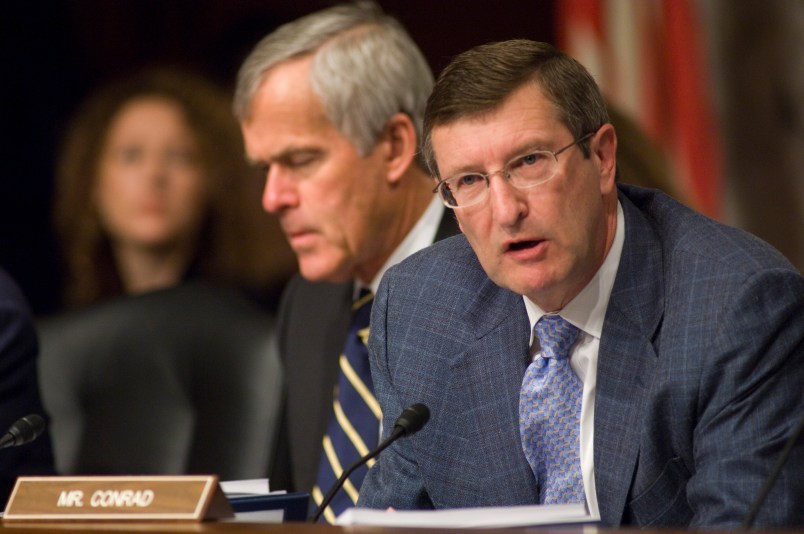The clear consensus among leading Democrats is that the only true way forward on health care is for the House to pass the Senate’s bill with a separate, guaranteed bill, or bills, making major changes to key aspects of it. And with Democrats down to 59 votes in the Senate, those changes would have to be passed via the budget reconciliation process, which circumvents the filibuster.
Progressives support the idea, but key questions remain–including whether the Senate can, or will take the necessary steps to make that happen.
Already, a number of conservative Democrats have come forward to say they oppose the proposed solutions outright. Others, including Sen. Ben Nelson (D-NE) and Sen. Joe Lieberman (I-CT) have said they prefer different approaches. And for the plan to hold, Democrats could lose no more than 9 members.
“It’s a new reality post Massachusetts special election so the question is do you want to try to find any procedural way you can to get something through, or do you want to try to reach out one more time to see if we can do this in a bipartisan way,” Lieberman told reporters today.
As you know, after a lot of pushing and pulling, I voted for the Senate bill, because I thought that it was good enough to vote for, and therefore I would vote for it again, but I’ve always felt that the best way to adopt a major reform like health care reform is bipartisan.
I hope before any other strategies are followed–and I’m encouraged to believe that this is true–that the White House and the Democratic leadership will one more time reach out to the Republicans and see if they want to try a common ground health care reform.
Progressives, however, favor the remedy.
“I do [support the reconciliation approach],” said Sen. Sherrod Brown (D-OH). “The strategy’s not really discussed at length yet. But I want to see a health care bill.”
“We’re going to find a way to do this, and it’s going to be a good bill,” Brown said.
Assuming there are 50 votes (plus Vice President Joe Biden as tie breaker) for “Plan B,” it’s still not completely clear whether Senate Democrats will be able to pull the trick off. There are procedural and political complications that will need to be massaged away.
“We’ve got to understand, again, the Byrd rule requirements,” said Senate Budget Committee Chairman Kent Conrad (D-ND). The Byrd rule specifies if it does not score for budget purposes, it’s subject to automatic strike; if the score is only incidental to the policy strike, it’s subject to automatic strike…. I think the role of reconciliation would be quite limited in a health care compromise.”
Pressed by TPMDC as to whether he would set the wheels in motion if asked by leadership, Conrad was non-committal. “I would have to know what that meant,” Conrad said. “Words have real meaning here…. What would I be asked to be getting behind. I don’t know that at this moment, so I could not say, ‘yeah, I’m willing to get behind something’ when I have no idea what it is I’m being asked to get behind.”










